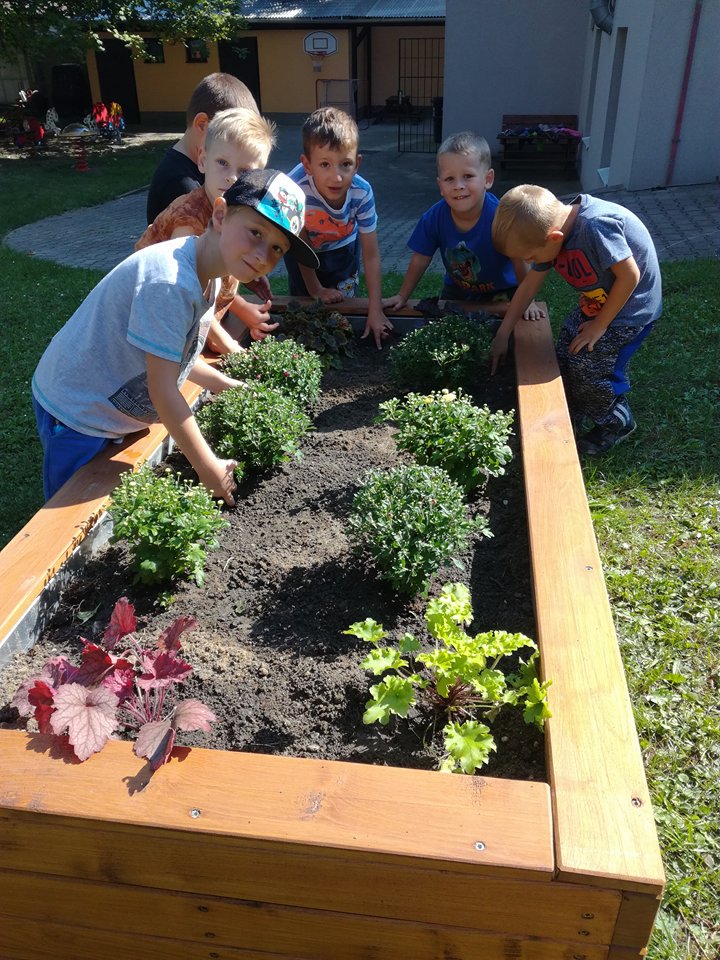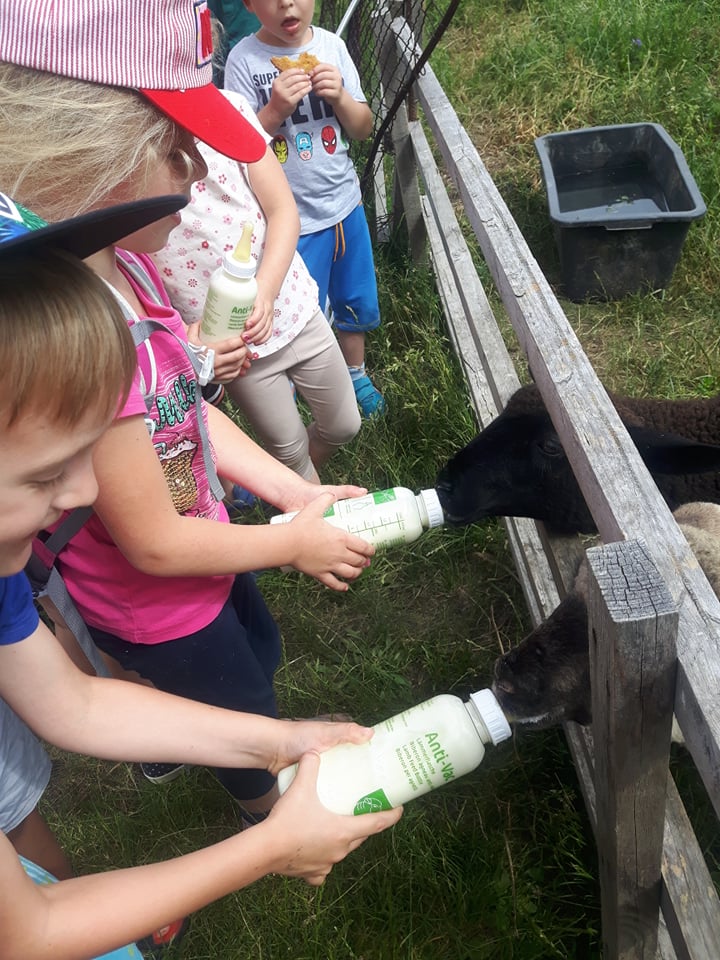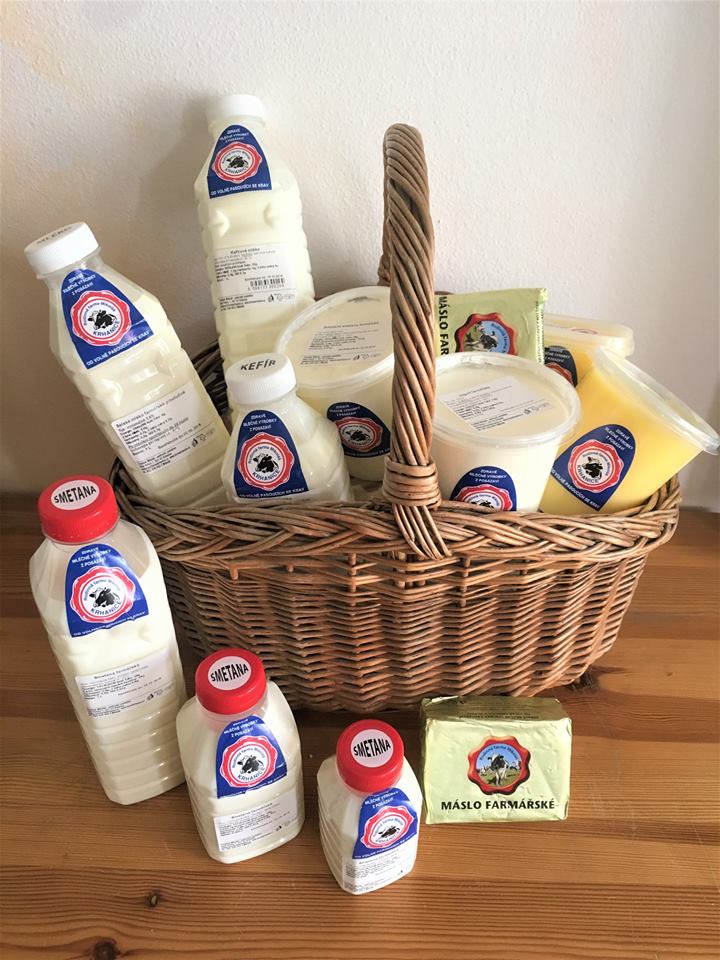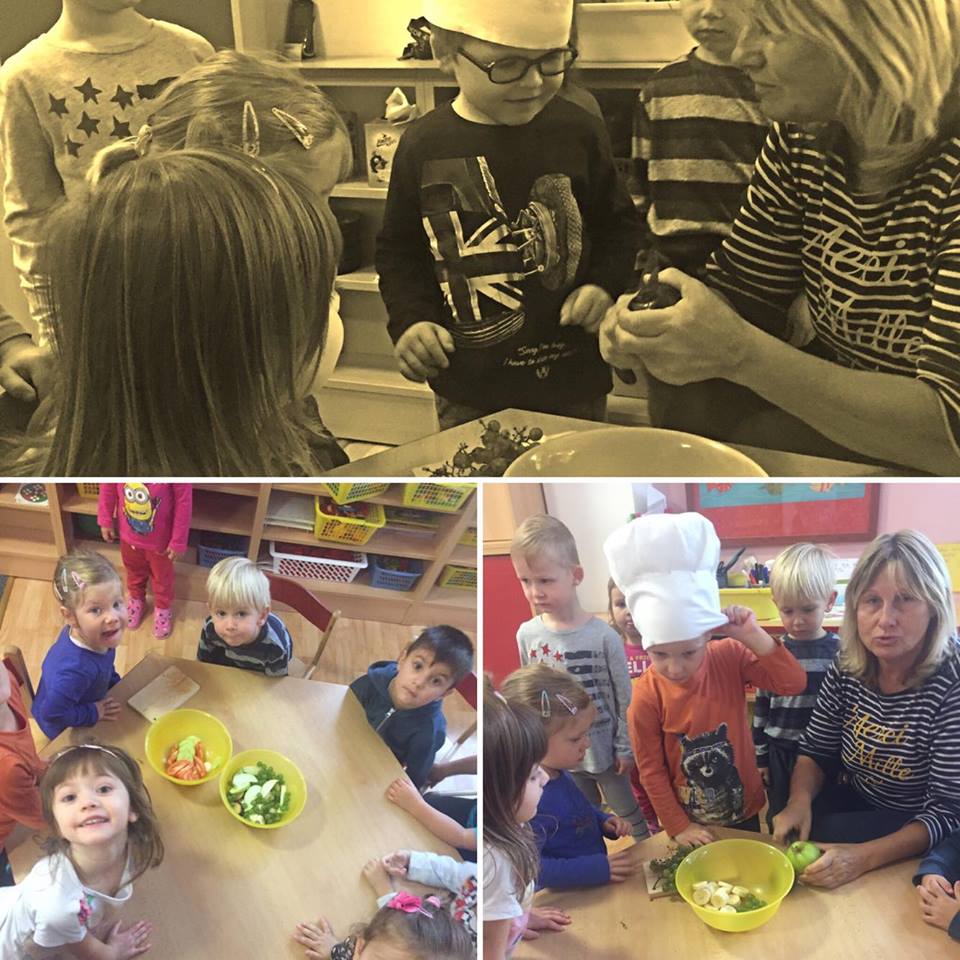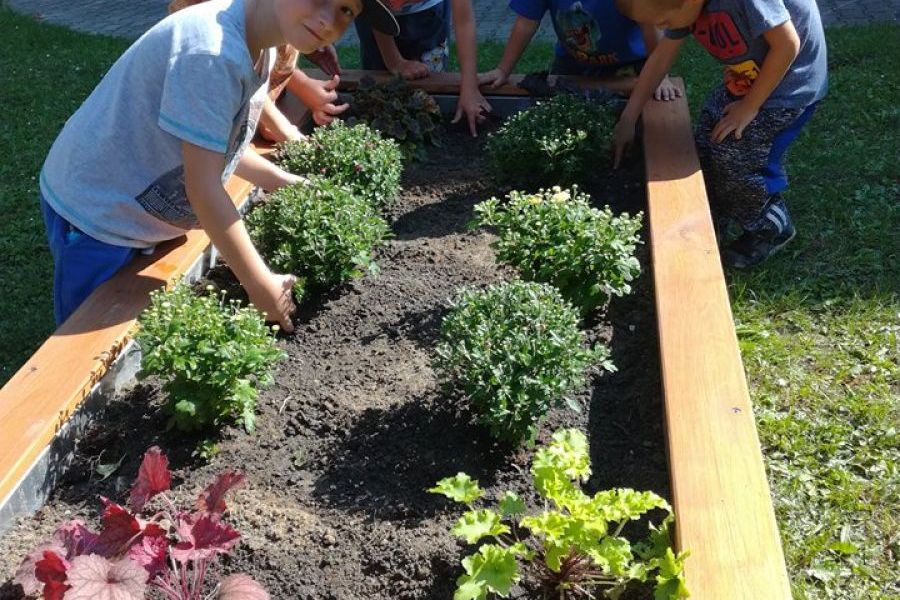
The problem
The primary challenge of the food crisis lies in supporting and enhancing sustainable agriculture, which is indispensable for food production.
The solution we used
Our approach involves educating young children on utilizing locally sourced food from farmers, offering insights into farm operations and the challenges faced by farmers. Additionally, it is vital to instruct children on minimizing food wastage by creatively using leftovers, processing bio-waste, and similar practices. Moreover, we engage children in cultivating small vegetables and herbs, providing them firsthand experience of gardening's demands and fostering a deeper appreciation for the food they consume.
Implementation
Every year, we visit the farmer twice, always in spring and autumn, to gain insight into field work and animal care practices. We cultivate raised beds where we grow small vegetables such as lettuces, carrots, tomatoes, and radishes, alongside fruit trees and potted herbs for flavoring and salads. Throughout the year, we consistently cultivate microgreens.
Our menus predominantly feature food sourced from local farmers, with additional purchases from small farmers in the Ústí nad Labem region. We produce our own cheese using milk sourced directly from farmers. We organize meetings with farmers for parents to raise awareness and promote sustainable practices. Furthermore, we engage in discussions with parents about reducing salt and sugary foods, ensuring that the children in our kindergarten have a balanced diet.
Our approach to home cooking for children and parents has been highly successful, following simple rules: all food is either farm or homemade, without added salt, sugar, or additives. Additionally, we take children to various food establishments in the city, including bakeries, butcher shops, and cider houses. Instead of sweetened beverages, we encourage drinking tap water flavored with herbs and fruit.
We prioritize minimizing food waste by regularly monitoring leftovers and finding alternative uses for them, such as fertilization or feeding animals with stale bread. Additionally, we bake our own bread in-house.
